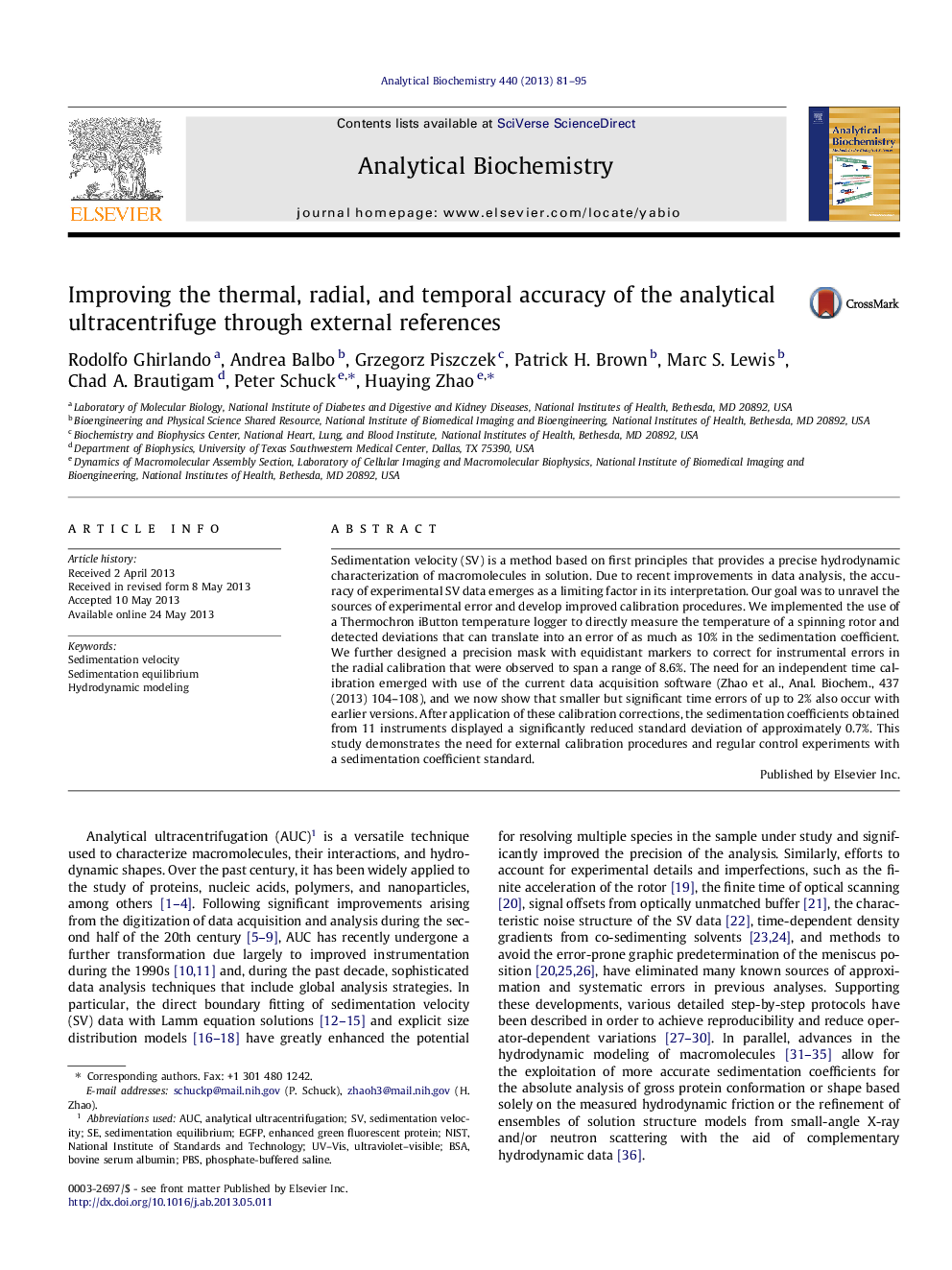| Article ID | Journal | Published Year | Pages | File Type |
|---|---|---|---|---|
| 1176313 | Analytical Biochemistry | 2013 | 15 Pages |
Sedimentation velocity (SV) is a method based on first principles that provides a precise hydrodynamic characterization of macromolecules in solution. Due to recent improvements in data analysis, the accuracy of experimental SV data emerges as a limiting factor in its interpretation. Our goal was to unravel the sources of experimental error and develop improved calibration procedures. We implemented the use of a Thermochron iButton temperature logger to directly measure the temperature of a spinning rotor and detected deviations that can translate into an error of as much as 10% in the sedimentation coefficient. We further designed a precision mask with equidistant markers to correct for instrumental errors in the radial calibration that were observed to span a range of 8.6%. The need for an independent time calibration emerged with use of the current data acquisition software (Zhao et al., Anal. Biochem., 437 (2013) 104–108), and we now show that smaller but significant time errors of up to 2% also occur with earlier versions. After application of these calibration corrections, the sedimentation coefficients obtained from 11 instruments displayed a significantly reduced standard deviation of approximately 0.7%. This study demonstrates the need for external calibration procedures and regular control experiments with a sedimentation coefficient standard.
